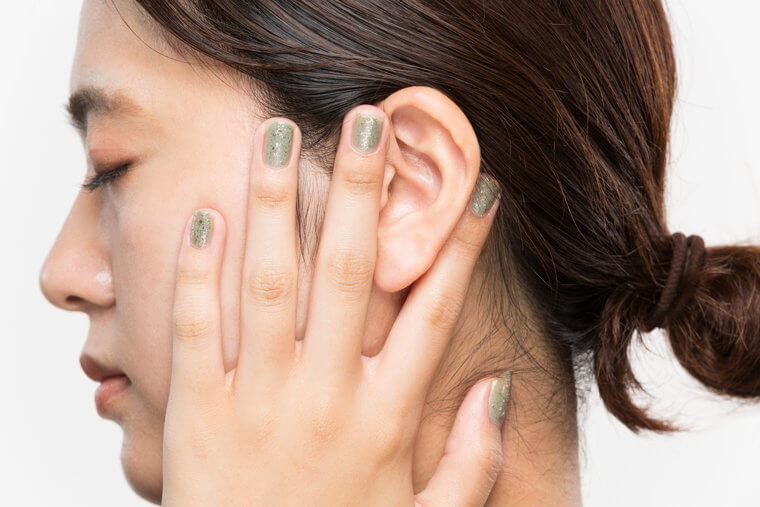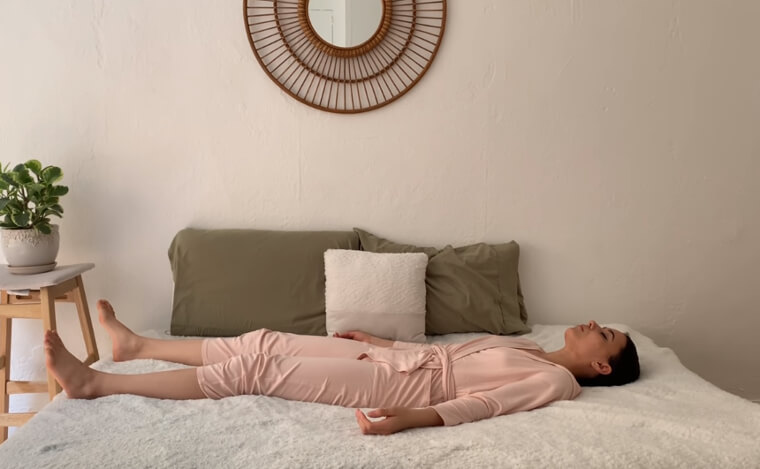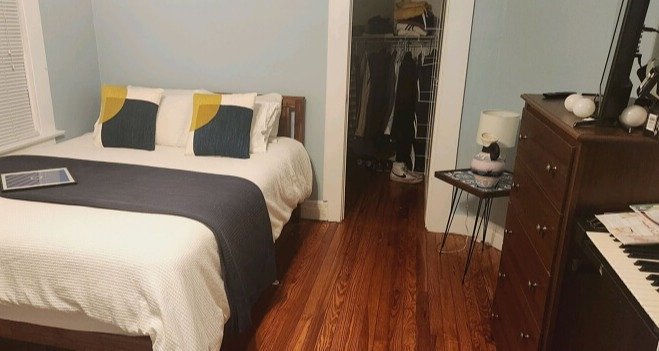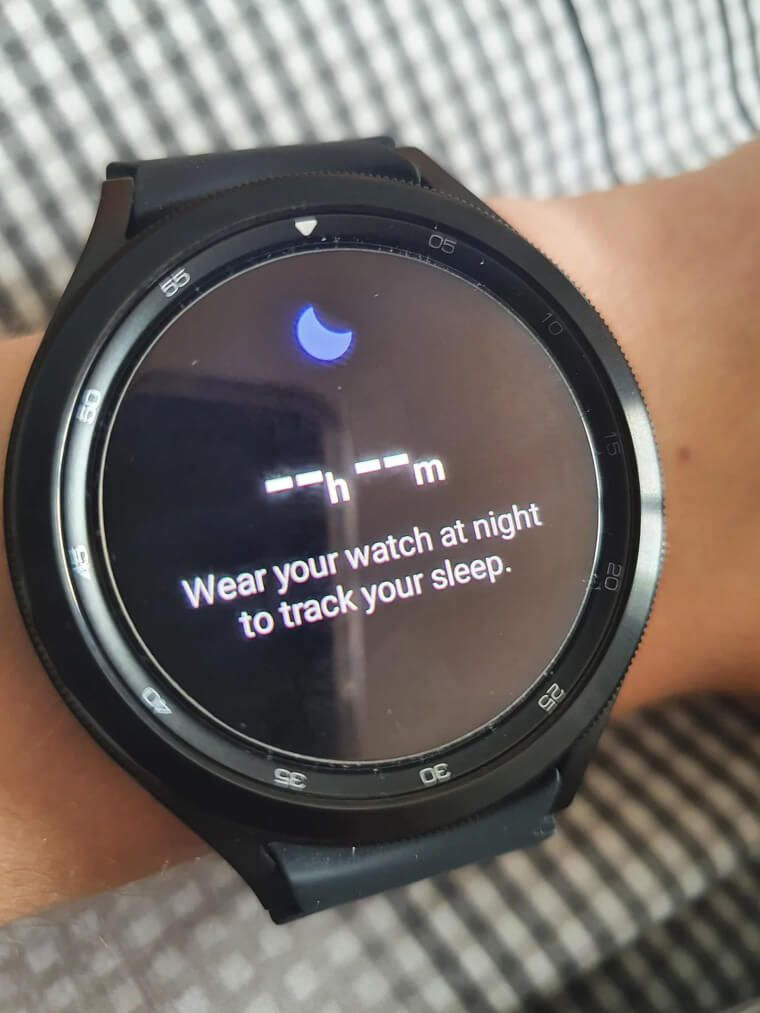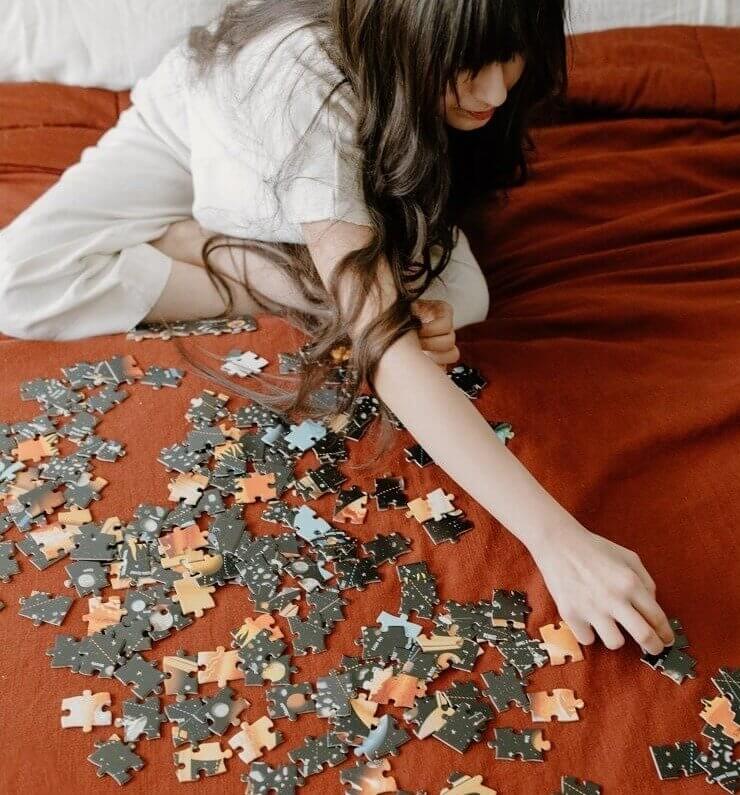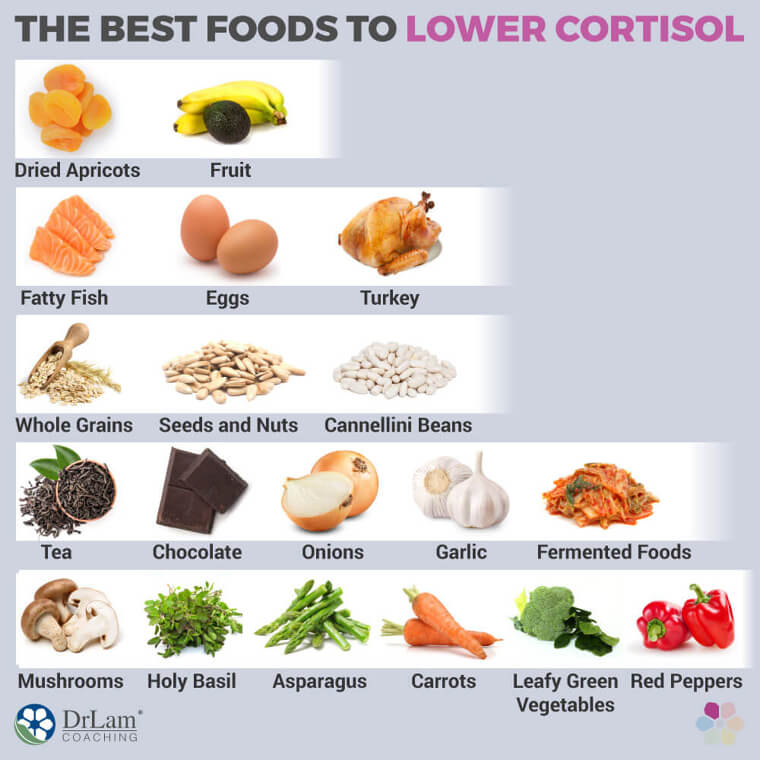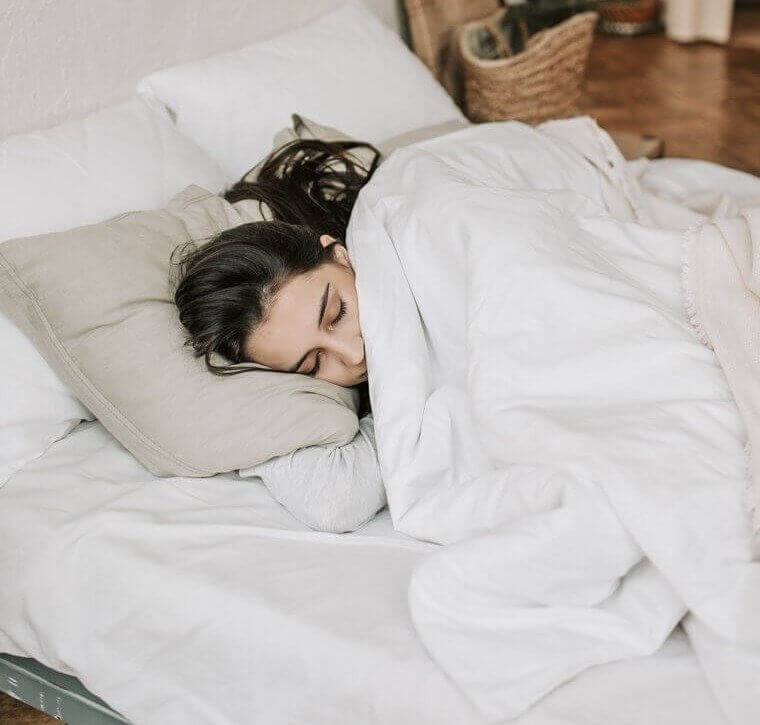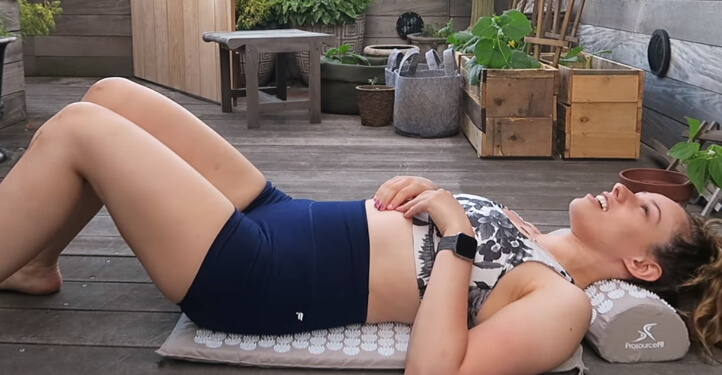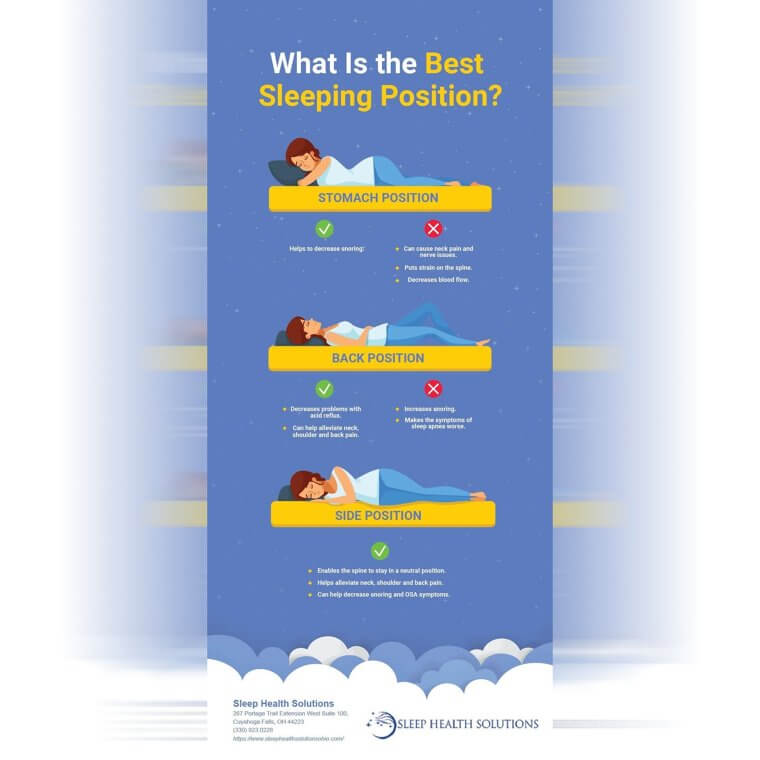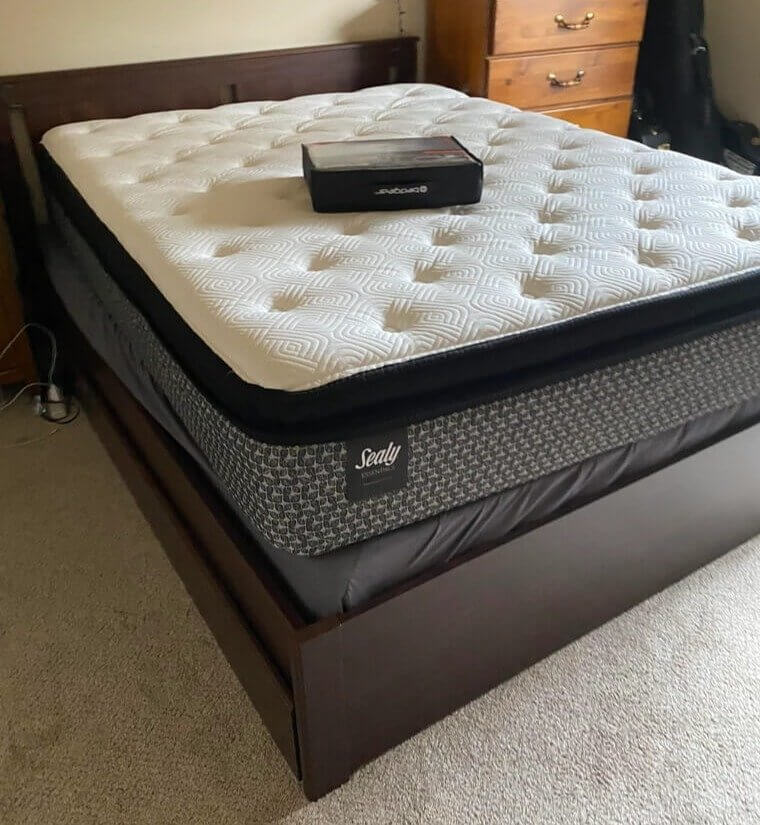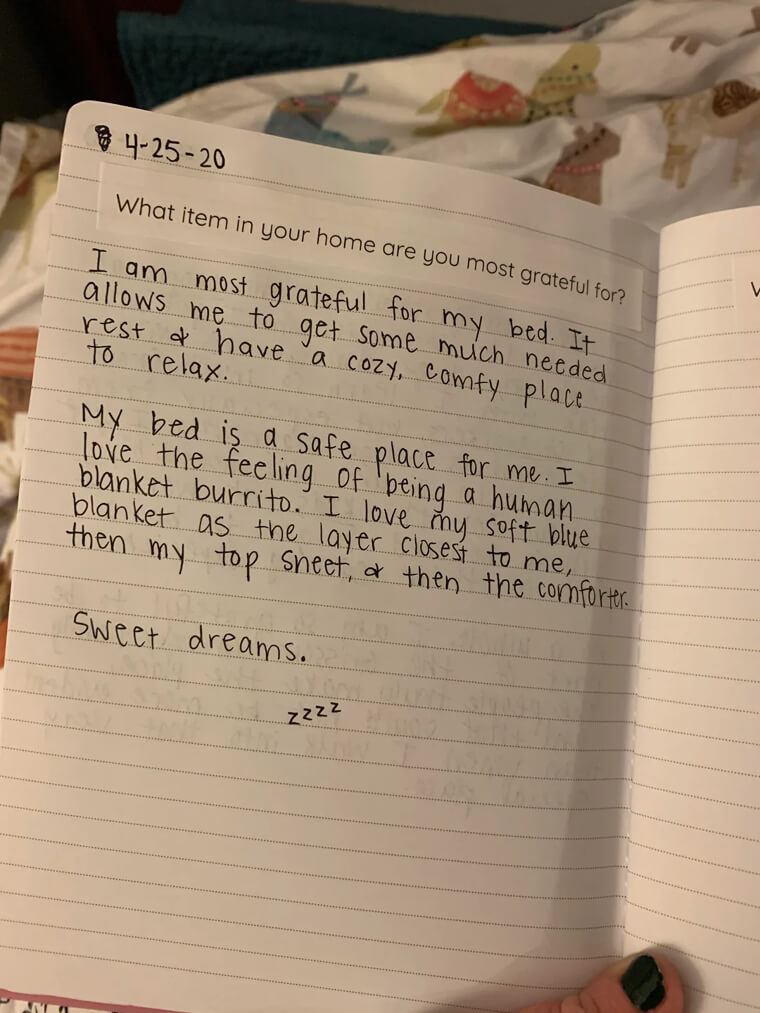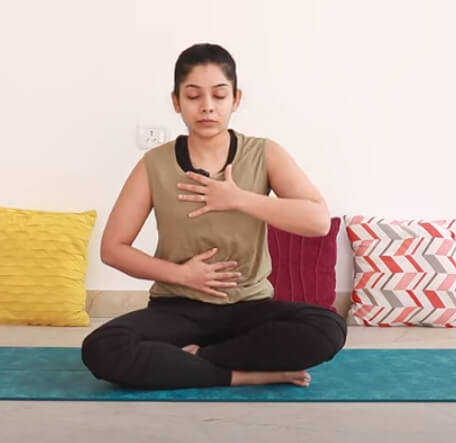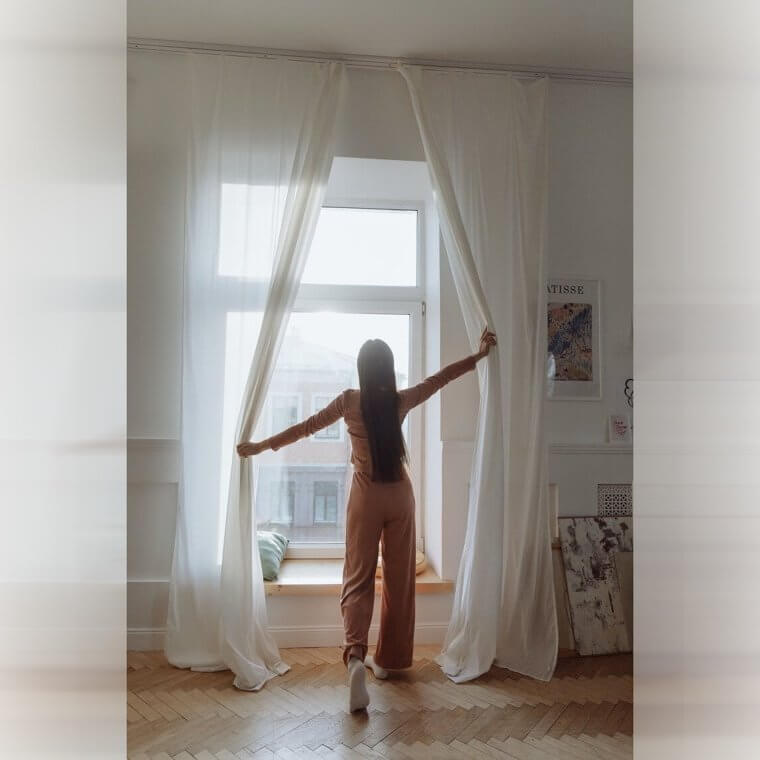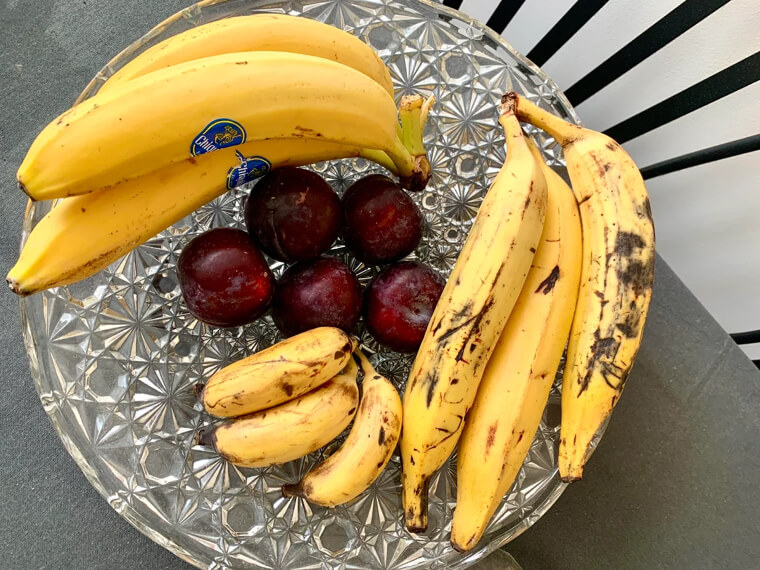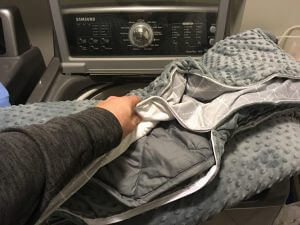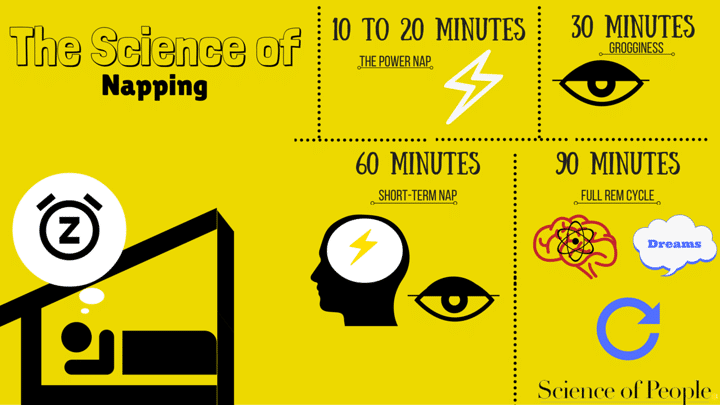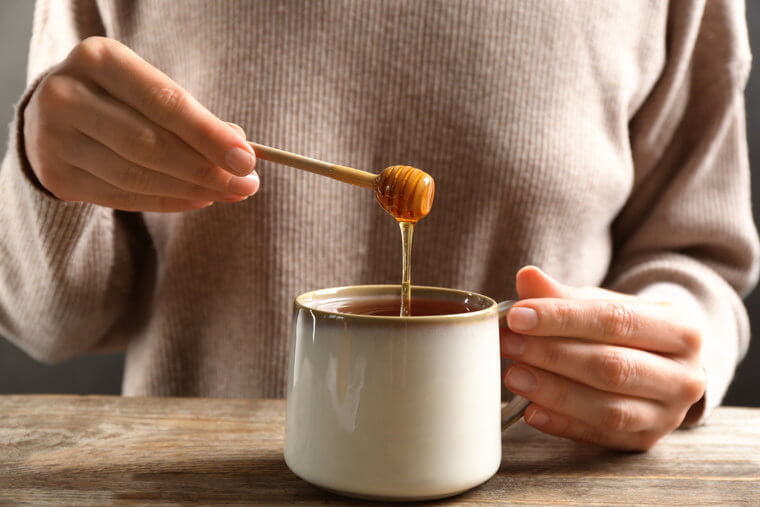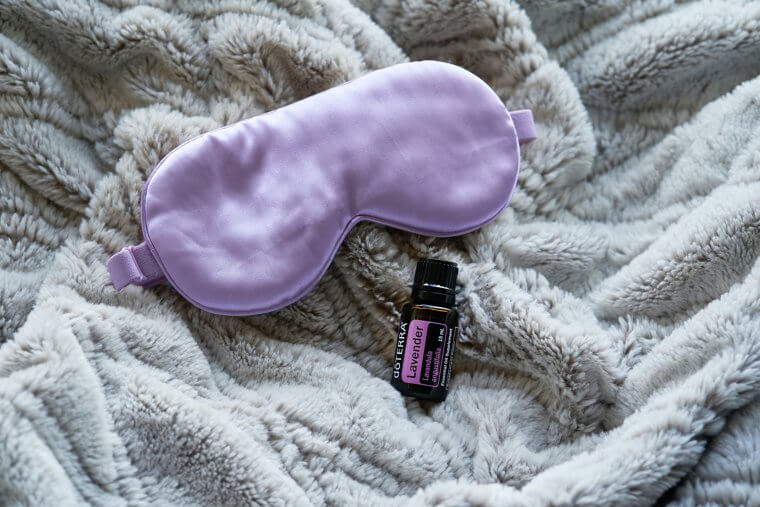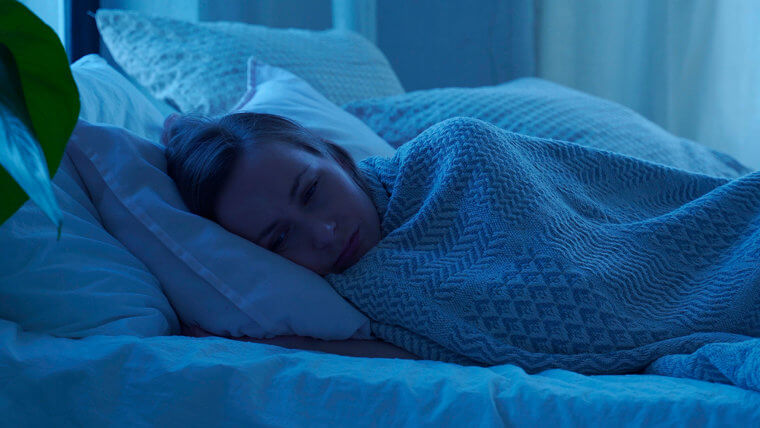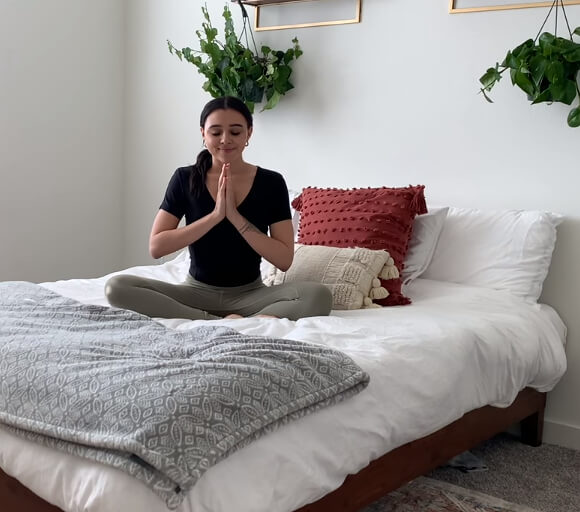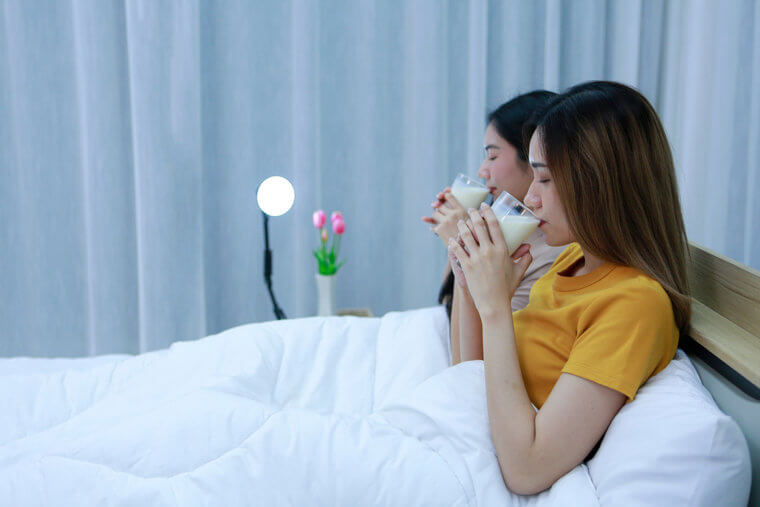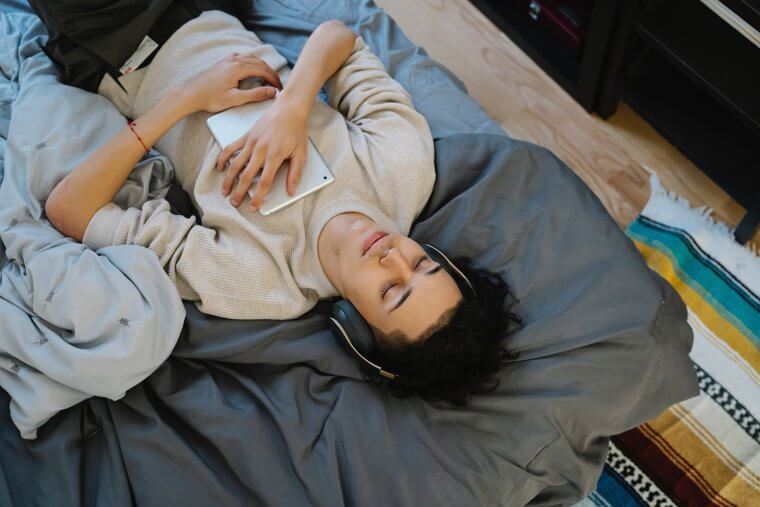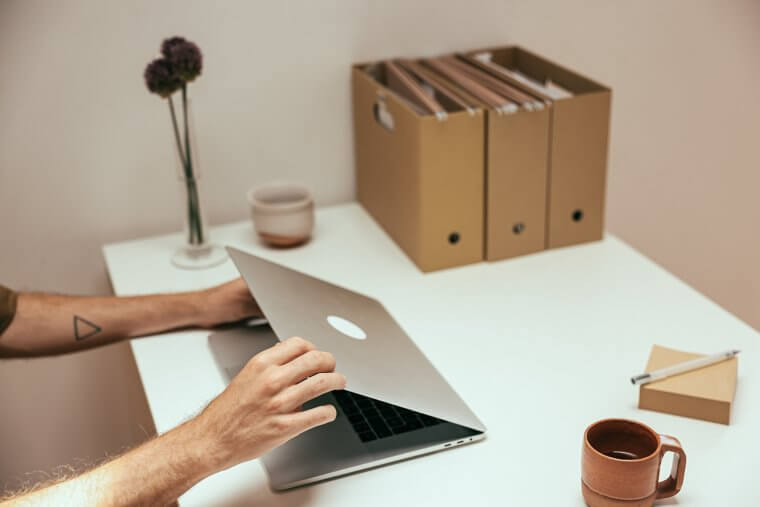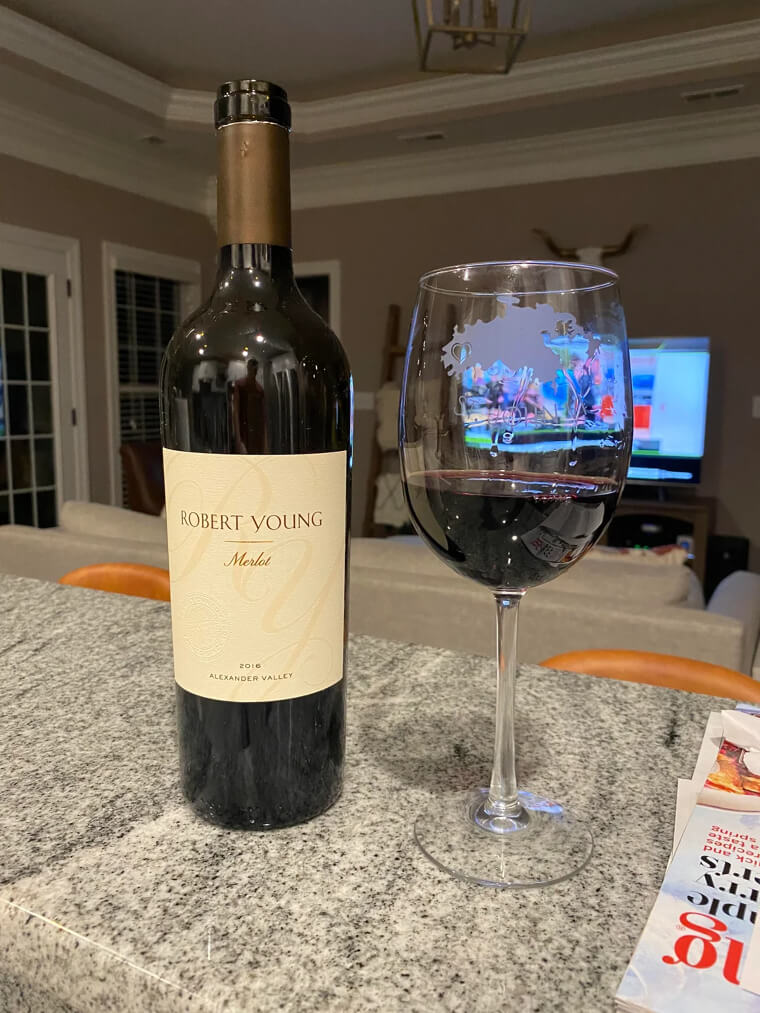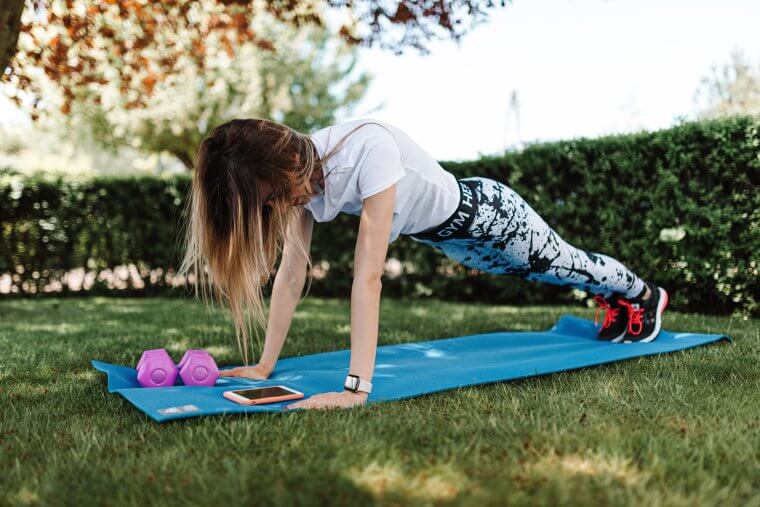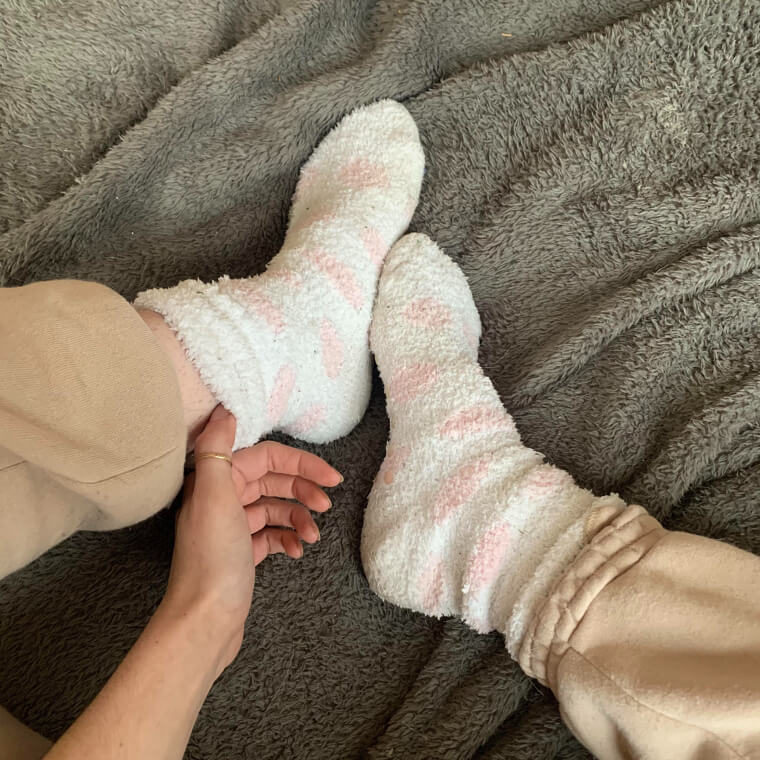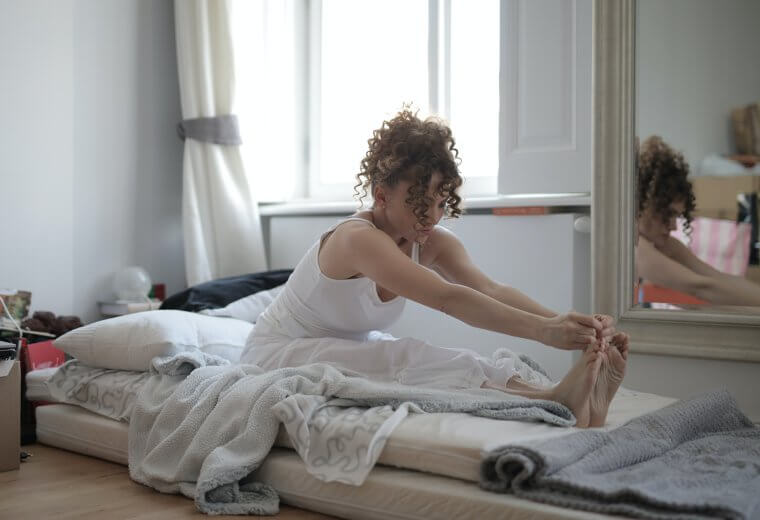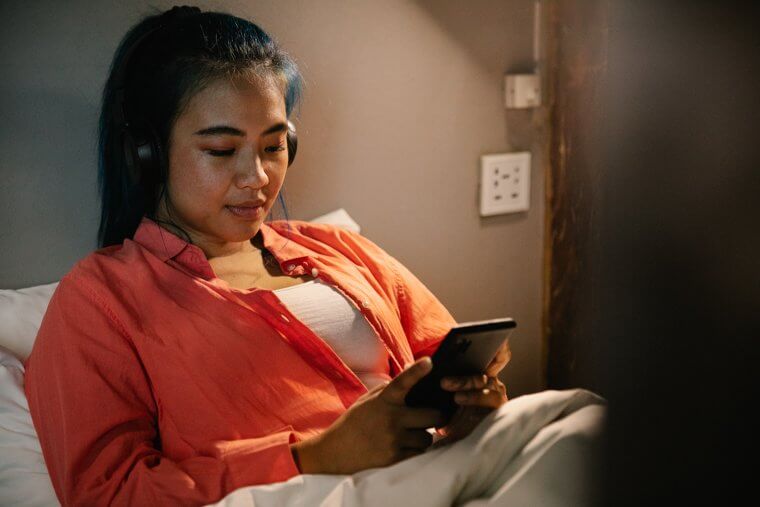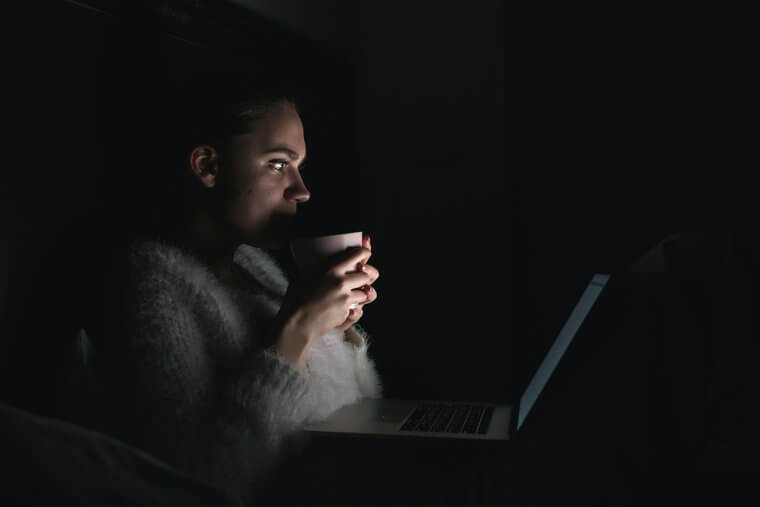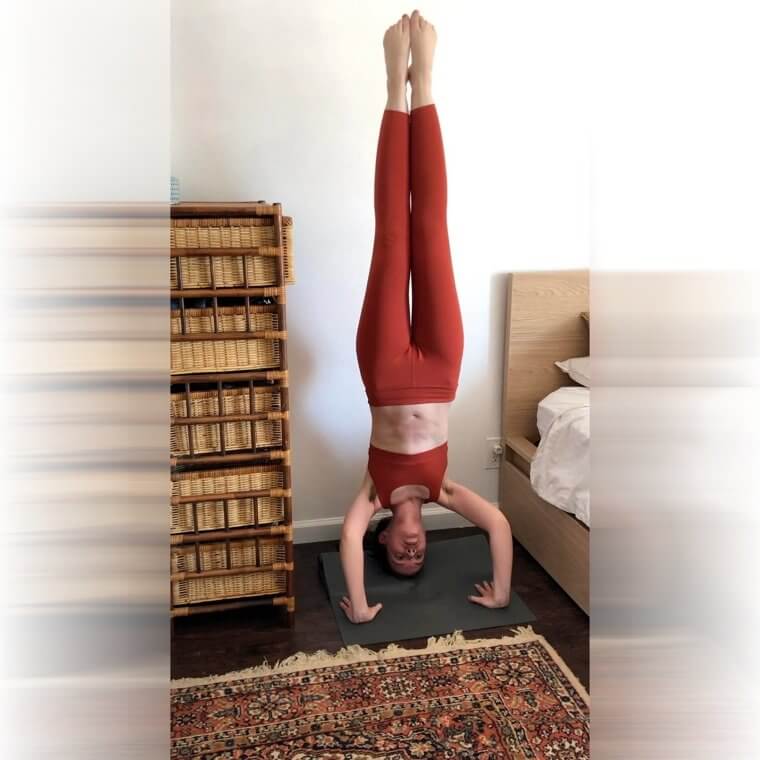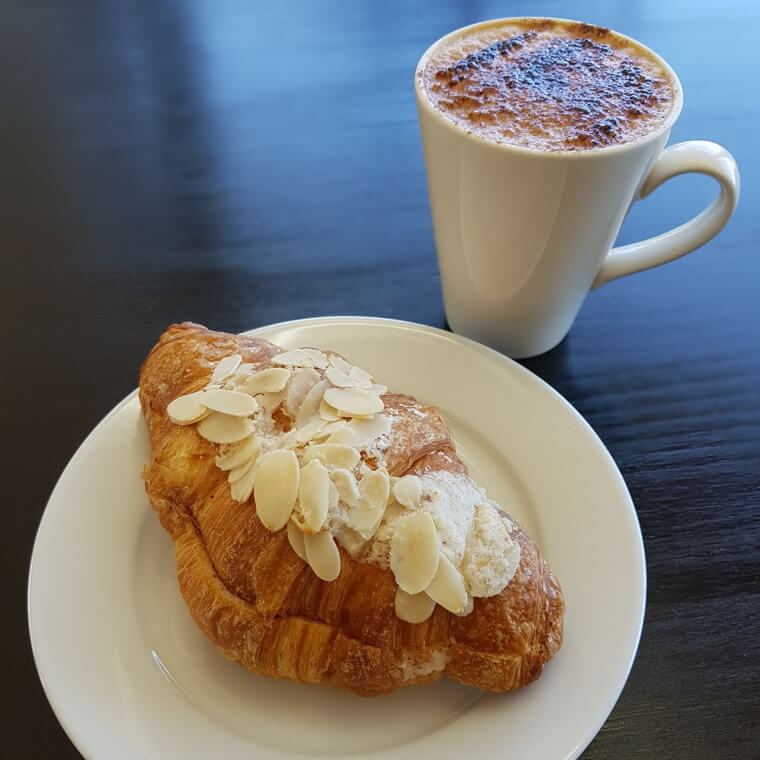Ear Massages Can Put You Right to Sleep
Here's an unexpected but effective trick: easy ear massages. Massages are renowned for easing bodily tension, paving the way for relaxation, but did you know there's a specific part of your ear that can help you fall asleep? Research shows that placing your fingers about 1 cm behind the middle of your ear and then holding pressure on this point for 10-20 seconds can help you fall asleep! Do it a few times in a row until the drowsiness kicks in.
It may seem weird at first but it's an efficient method to soothe your way into slumber without leaving your bed.
Visualization Exercises Can Relax You and Make It Easier to Fall Asleep
Before settling in for the night, engage in mental exercises like imagery and visualization to calm your senses. Similar to meditation, sit and close your eyes and envision a serene or joyful memory from your past during this practice. Thinking of nature, the sunset and the beach are some things most people use for inspiration. This can help you relax and calm your nervous system to help you get in the mindset for a restful night.
This practice is especially recommended for individuals struggling with sleep problems and has proven to work, so give it a try.
The Color of Your Walls Impact Your Ability to Sleep
The color of your walls might seem like a small detail, but it significantly impacts your mood and sleep without you even realizing it. The psychology of color reveals that different hues can evoke powerful emotions and reactions, influencing how you feel and function in a space. When it comes to mood, warm colors like red, orange, and yellow can stimulate and energize. On the other hand, cool colors like blue, green, and purple tend to have a calming effect.
Scientific studies, such as the one conducted by Travelodge, have revealed a strong link between wall color and sleep duration. People with blue-painted bedrooms tend to enjoy more restful sleep compared to those with different wall colors.
Sleep Trackers Actually Increase Anxiety
Whether it's a smartwatch from Apple or a fitness tracker from Android, strapping one on before bed might not be the sleep solution you expect. Nearly ten percent of Americans habitually use fitness or sleep trackers for sleep monitoring. These gadgets promise insight into sleep patterns—duration, wake episodes, and even nocturnal chatter. But here's the twist: this data-driven quest for better sleep might be causing the opposite effect. Researchers put together shocking data.
People who meticulously track their sleep tend to wrestle with heightened anxiety about achieving ideal sleep. This anxiety-induced condition, labeled orthosomnia, ironically aggravates their sleep struggles.
Puzzles Can Relieve Stress Before Bed
Opting for calming games before bed can work wonders for your sleep. While keeping electronic devices out of bed is ideal, if it's a struggle, there's a solution. Try playing games instead. No, not games on your phone but board games and puzzles. These therapeutic games don't demand excessive attention, aiding in stress relief and anxiety reduction. These games are designed to be gentle on your mind, allowing you to unwind without taxing your cognitive resources.
Being on your phone before bed can actually stimulate your brain and wake you up more, so by opting for things like puzzles, you can help transition your mind into a more relaxed state, ready for bed.
Eat Foods That Decrease Cortisol Levels
Cortisol, a stress hormone, fuels our daytime energy. Its peak should be in the morning to aid awakening, tapering as the day progresses for bedtime preparation. Cortisol and melatonin have an inverse link—higher cortisol, lower melatonin. As sleep relies on melatonin, steady cortisol will affect it. That's why it's extremely important that if you struggle with sleeping, you have a well-balanced diet that includes foods that can help lower cortisol levels in your body.
Consume cortisol-reducing foods like dark chocolate, bananas, pears, green tea, and probiotics. Supplements like fish oil and ashwagandha can also help.
Drinking Hot Water and Lettuce Can Make You Drowsy
A new approach to inducing sleep involves consuming lettuce tea, crafted by steeping romaine lettuce leaves in hot water. While it may sound unconventional and strange, research has delved into romaine lettuce's impact on sleep, yielding surprising results. This can be attributed to lactucarium, a compound similar to opium in structure, present within lettuce. Lactucarium lends lettuce its sedative attributes, promoting drowsiness. If the concept of lettuce-infused water doesn't appeal to you, there's an alternative.
Capsules containing this sleep-inducing compound can be found in health food stores! If drinking this tea sounds gross, try it in pill-from instead.
Make Sure Your Pillow Supports Your Neck
Your pillow holds the key to sleep quality, especially when it comes to neck support. Ensuring proper neck alignment is essential for falling asleep with ease, breathing comfortably, and waking up refreshed, minus the aches or restlessness. The right pillow is a sleep secret, considering you'll spend around eight hours with it. Pillow size matters, too; a standard size often suffices, but larger options work as long as they maintain body alignment.
So if you find yourself waking up in the middle of the night and being unable to find a comfortable spot, experiment with different pillows; that could be the easy fix!
Sleeping Outside Can Help Reset Your Circadian Rhythm
Our circadian rhythm, the internal clock that regulates our sleep-wake cycle, can easily fall out of sync due to modern lifestyles. Late nights under artificial lights, excessive screen time, and irregular sleep schedules disrupt this delicate balance. However, a simple and effective solution exists: reconnecting with nature. Going camping or spending time outdoors exposes us to the natural light-dark cycle. This exposure helps reset our circadian rhythm, allowing our bodies to harmonize with the rising and setting of the sun.
The natural light cues promote the production of sleep-inducing hormones at the right times. This adjustment can significantly improve sleep quality and overall health.
Pressing Certain Points on Your Body Can Help You Sleep Better
Acupressure, rooted in ancient Chinese traditions, offers a fascinating approach to enhancing sleep quality. This non-medicinal technique involves applying precise pressure to specific body points to induce sleep. While resembling acupuncture, acupressure doesn't breach the skin's surface. It doesn't employ needles but rather a gentle massage on strategic points. The magic lies in stimulating these pressure points, each triggering a unique bodily response. Which means specific pressure points actually induce sleepiness.
You can even do this in the comfort of your own bed and feel results within minutes. So next time you can't fall asleep, try some acupressure techniques.
Your Sleeping Position Might Be Why You Can't Sleep
Finding it tough to drift into dreamland? Consider this: your sleep position might be at the root of it. Certainly, sleep positions play a significant role in both the quality of your sleep and your overall health. The way you position your body while sleeping can impact various aspects, from breathing to spinal alignment and even digestive processes. Sleeping on your back is often considered one of the healthiest sleep positions.
It's essential to prioritize comfort and proper alignment to ensure you wake up feeling refreshed and can easily fall back asleep at the end of the day without any aches or pains.
Mattress Pads Can Help You Sleep More Comfortably
If sleep troubles persist, your comfort might be the culprit. It's ideal to have a mattress that's fitting for your body type so you can easily find comfort when lying in bed and trying to sleep. This is where mattress pads come into play because they make a world's difference. They can add extra foam and comfort to your current mattress or even come with temperature-regulating features so they can heat or cool you down throughout the night.
They can prevent sudden night sweats or chills and add just the right amount of comfort, genuinely changing how you sleep. It may seem so simple, but it's truly a hack worth mentioning.
A Gratitude Journal Can Reduce Anxiety, Depression and Sleeping Issues
Looking for a hidden sleep hack? Amidst the chaos, consider an unexpected ally: a gratitude journal. You might wonder how jotting down thankful thoughts connects to sleep, but here's the secret: it works wonders. Research unveils a direct link between gratitude and well-being, leading to a calmer mind and improved sleep quality. In fact, the benefits range from reduced blood pressure to minimized depression and anxiety risks and improved sleep!
Start simple: pen a few weekly appreciations. Over time, this habit merges into your bedtime routine and you'll fall fast asleep after.
4-7-8 Breathing Method Helps You Feel More Relaxed
Harness the power of breath for improved sleep through the 4-7-8 technique. Breathing significantly impacts stress and anxiety regulation, much like in yoga, where deliberate, slower breaths enhance tranquility. These principles are adaptable for bedtime to expedite sleep onset. The 4-7-8 method involves inhaling through your nose for four counts, retaining your breath for seven counts, and then exhaling for eight counts through your mouth. Do this for at least four cycles and watch how relaxed you become.
This intentional breathwork relaxes your mind and body and releases all tension. Incorporating this technique into your bedtime routine will foster a seamless transition to sleep.
Get Sunlight First Thing in the Morning
Basking in morning sunlight might seem counterintuitive, but it's a sleep secret that works—greeting the day's first light syncs your internal clock. Though early wake-ups can be a drag, they help your body's circadian rhythm stay on track. Morning sunlight exposure kickstarts your system, making you naturally more fatigued as evening sets in. Letting those rays touch your skin is like giving your body a gentle nudge to get the day started.
So, embrace the morning glow to ensure a smoother, more restful transition to sleep when darkness falls! Your mornings in the sun will set you up for a perfect rest in the evening.
Bananas Improve Your Sleep Quality
Bananas are nature's multi-benefit wonder that has sleep-boosting potential most don't even know about. Beyond their health perks, bananas aid sleep in various ways. They have stress-reducing properties and muscle-relaxing capabilities that are backed by science because of their high concentration of magnesium and potassium. While their natural melatonin content also assists in regulating sleep patterns, enhancing overall sleep quality. They are packed with all the nutrients that are perfect for those struggling with sleep.
It's an easy tip that can anyone is capable of! Just grab a banana as a snack before bed and let it do its magic.
Weighted Blankets Can Increase Deep Sleep Periods
A rising trend in sleep improvement has been weighted blankets. These blankets are gaining attention for their ability to aid those dealing with insomnia, anxiety, or depression. Functioning like a gentle hug, the even pressure has a soothing impact, promoting a sense of safety and comfort during sleep. Studies reveal that using a weighted blanket can reduce nighttime restlessness, leading to longer periods of deep sleep. This cumulative effect enhances overall sleep quality.
This all adds up to better sleep quality. With so many hacks available, a weighted blanket could be the ultimate solution for a peaceful and refreshing night's sleep.
Make Sure You Only Nap for 20 Minutes
Master the science of napping to ensure a good night's sleep. In the face of daytime fatigue, naps can seem like the best remedy, but they can completely throw off your sleep schedule for the rest of the day. That's why the key is to know how long to nap. The "power nap," is a concise 15 to 20-minute nap that recharges without inducing grogginess. It taps into the restorative benefits of sleep without plunging into full sleep cycles.
Longer naps initiate deeper sleep stages and, in turn, make it harder to wake up from and harder to fall asleep later in the day.
Eating Honey Can Release Melatonin
Beyond being a sweet tea companion or the perfect condiment for dessert, honey has a surprising talent: it aids sleep. Scientifically proven, honey triggers the release of melatonin, the sleep-inducing hormone, so eating a bit of honey before bed is the perfect hack for a better night's rest. Just a teaspoon or two is the ideal amount to induce the release of melatonin without spiking your blood sugar levels too much.
Embrace this natural remedy in measured doses, and you'll be off to a sweet slumber in no time.
Lavender Calms the Nervous System
For centuries, lavender was hailed as a "cure-all." But science zeros in on its true prowess: aiding sleep. Specifically, lavender oil emerges as a potent sleep inducer, elevating both sleep duration and quality, ensuring a refreshed morning. Lavender's charm lies in its ability to calm the central nervous system. Whether you use lavender oil in a diffuser in your room, apply it topically, or infuse a soothing pre-sleep bath; it's proven to work.
With lavender, you're guaranteed a tranquil night's sleep. It's an easy hack that you can't skip out on.
Skipping Breakfast Can Throw off Your Circadian Rhythm
Think of your body like a finely tuned orchestra, with each instrument playing in harmony. Breakfast is like the conductor that starts the music. Skipping breakfast messes up the rhythm of this orchestra. When you wake up, your body expects some fuel to start the day. If you don't give it that fuel, it's like missing a beat in the music, and it can throw your whole body out of whack the rest of the day.
Skipping breakfast can actually throw your circadian rhythm off and affect your sleep later in the day, so make sure to eat something.
Sleeping in a Cold Room Can Help You Stay Asleep
Consider the thermostat temperature before bedtime because it makes a world's difference. Scientifically proven, a cooler bedroom environment promotes quicker and more restful sleep. The rationale lies in our body's innate rhythm: as we sleep, our core temperature naturally drops by a degree or two. Thus, a cooler room accelerates this process, aiding in falling asleep faster. This is a helpful trick, especially for people with insomnia! So grab your blankets and crank the temperature down.
The hack is to always keep your room cooler and make falling asleep smoother, using the connection between temperature and better sleep to your advantage!
Body Scan Before Bed Will Help You Fall Asleep Faster
Another hack that is perfect for those who can't fall asleep is a simple trick: body scans. Even though it sounds medical, it's a relaxation technique for bedtime. With body scans, you focus on different body parts, helping you relax. You start by lying down comfortably and concentrating on your head, then move through each part of your body, releasing any tension. If something feels uncomfortable, take a deep breath and imagine stress fading away.
After 10 to 20 minutes, check if you're fully relaxed. Soon enough, you'll find yourself drifting into sleep. It's an easy way to find calm and better rest.
Drinking Warm Milk Helps Produce Melatonin
The age-old tradition of offering warm milk before bed isn't just folklore—it's backed by science. Research affirms that a modest serving of warm milk can genuinely aid in falling asleep. A notable experiment in a hospital heart unit showed that patients who consumed warm milk with honey for three consecutive nights exhibited enhanced sleep quality. Milk boasts tryptophan, a sleep and mood-enhancing compound. This nutrient supports the brain in generating serotonin and melatonin.
Serotonin and melatonin are crucial for falling asleep, so by drinking milk, you're boosting these chemicals! Before you know it, you'll be in a deep sleep.
Calming Music Destresses and Slows Down Your Heart Rate
Harness the potential of calming music as a tool to enhance your sleep quality. The influence of music on mood is well-known, but its impact on sleep might surprise you. Unlike your favorite tracks, specialized compositions like lullabies and soothing rhythms are curated to induce sleep. This goes beyond mere assistance in falling asleep; it actively reduces cortisol, a stress hormone, promoting a perfect environment for relaxation. Sleep never sounded better!
When you listen to it, your heart rate slows down, blood pressure goes down, and you breathe slower. This all helps your body relax and get ready for sleep.
Stay off All Electronics at Least 30 Minutes Before Bed
Electronics emit blue light that stimulates and keeps the brain alert. This is the opposite of what we'd like to happen when winding down and trying to fall asleep. It's recommended to stop using all electronics at least thirty minutes before bed to give your brain time to relax and get into sleep mode. If you want to dramatically improve your sleep routine and ability to fall asleep, staying off your phone will be a lifesaver.
These secrets could be the missing piece to your sleep puzzle. If you're curious and want to discover more ways to improve your sleep, don't stop now.
Cut Down on the Wine a Few Hours Before Going to Sleep
While it might seem that a nightcap, a final glass of wine, or a soothing beer can aid sleep, the reality is often different. Unbeknownst to many, these drinks can actually disrupt your sleep, potentially leading to significant sleep problems. Although alcohol is a sedative, its presence and subsequent breakdown in your system can result in various negative effects. Consuming a considerable amount before bedtime might result in fragmented sleep and even insomnia.
Instead, consider abstaining from alcohol for at least a couple of hours before winding down for the night.
Exercising in the Morning Can Boost Metabolism and Make You Fall Asleep Faster
While everyone may have a preference for when to exercise, there is a tip to aid in better sleep. Working out in the morning does offer advantages for sleep! While nighttime exercise might seem beneficial, it can lead to increased body temperature and adrenaline. Therefore if you work out close to your bedtime, your body may take a while to cool down, making it more difficult to transition into a relaxed state and fall asleep.
Amidst the enduring debate on morning versus evening workouts, consider shifting your exercise routine to the morning for potentially improved sleep quality. Embracing morning workouts could offer a valuable addition to your sleep-enhancing regimen.
Wearing Socks Keeps Your Body Heat Regulated
Ever thought of wearing socks to bed for better sleep? It might sound odd, but it's a handy trick. Just like cooling your room, this method aids sleep by helping your body cool down efficiently. By lowering your core body temperature, it helps you fall asleep faster. It's such a simple hack that anyone can try! Put on some socks next time you head to bed, and watch as you become sleepier faster than ever.
Slip into comfy socks before bed and let the science of temperature regulation work its sleep-inducing magic.
Stretching Every Night Helps Relieve Muscle Tension
Stretching isn't just a morning ritual; it's a valuable "cool down" for your day's finale. Stretching releases lingering muscle tension, acting as a preemptive shield against nighttime cramps and relaxing your body. Stretching not only prioritizes releasing tension in your physical body but is also a form of meditation, bringing mindfulness. This is perfect to do before bed to redirect your focus, slow down your thoughts and breathing and induce drowsiness.
Think of it as a nightly ritual, nurturing both body and mind, paving the way for a peaceful night free of restlessness.
ASMR Helps Millions of People Fall Asleep
When you're lying in bed wide awake and can't seem to fall asleep, there's a secret trick that's helped millions. It may seem strange at first, but the new phenomenon of listening to ASMR videos before bed has become a trend. People swear by listening to videos online of people whispering or making soothing sounds to help lull them to sleep. So grab your headphones and search for a video that speaks to you!
You'll fall asleep in no time and soon enough be watching ASMR videos every night to fall asleep.
Don't Watch Intense Shows Before Sleep
Watching TV before bed is tempting; it seems like the perfect way to unwind and catch up on some shows that everyone seems to be talking about. But beware, late-night TV viewing can throw off your internal clock, demanding your brain's attention when it should be winding down, especially when it comes to intense and action-based shows that overstimulate your brain! It's best to avoid these types of shows so you can fall asleep quickly.
Choose calming activities or music to prepare your mind for rest, and let sleep take center stage! Avoid any intense shows for a few hours before bed.
Headstands Boost Blood Flow to Your Brain
It might sound unconventional, but when sleep eludes you for hours, consider flipping your perspective – quite literally. Surprisingly, a headstand could be a potent remedy for restlessness. A study from 2004 in Applied Psychophysiology and Biofeedback found that specific yoga poses can remarkably aid sleep struggles. The headstand, for instance, increases blood circulation to the brain's pituitary and hypothalamus, which are directly linked to sleep regulation. Experts suggest this detoxification process can foster a more positive mindset.
So, while it might seem strange, flipping into a headstand could be a valuable tool for attaining a refreshing night's sleep.
Cuddle With Your Pet to Reduce Stress Before Bed
Stress can seriously impact your life but especially your sleeping habits. When you get home, it's time to unwind and relax. But if you still have worries from the day on your mind, it can only make it more challenging to get to bed and stay asleep without tossing and turning from your own mind. So what's a proven hack to help this problem? If you have a pet, it's your lucky day.
Sitting with your pet and cuddling for an hour or even taking them on a walk can significantly reduce your stress levels and make it easier to fall asleep that night.
Bribe Yourself to Bed With Your Favorite Breakfast Treat the Next Morning
Are you having trouble with your sleep schedule? Well, there's a psychological trick that's used for this exact predicament. Treat yourself in the morning to motivate better sleep habits. How would this work? By pledging a morning reward, you can coax yourself into a healthier routine. If you promise yourself a treat in the morning, whether it's a cup of your cherished local coffee or a croissant, you'll be more likely to get to sleep!
You'll also be less likely to hit the snooze button because you have something to look forward to when you get out of bed.

